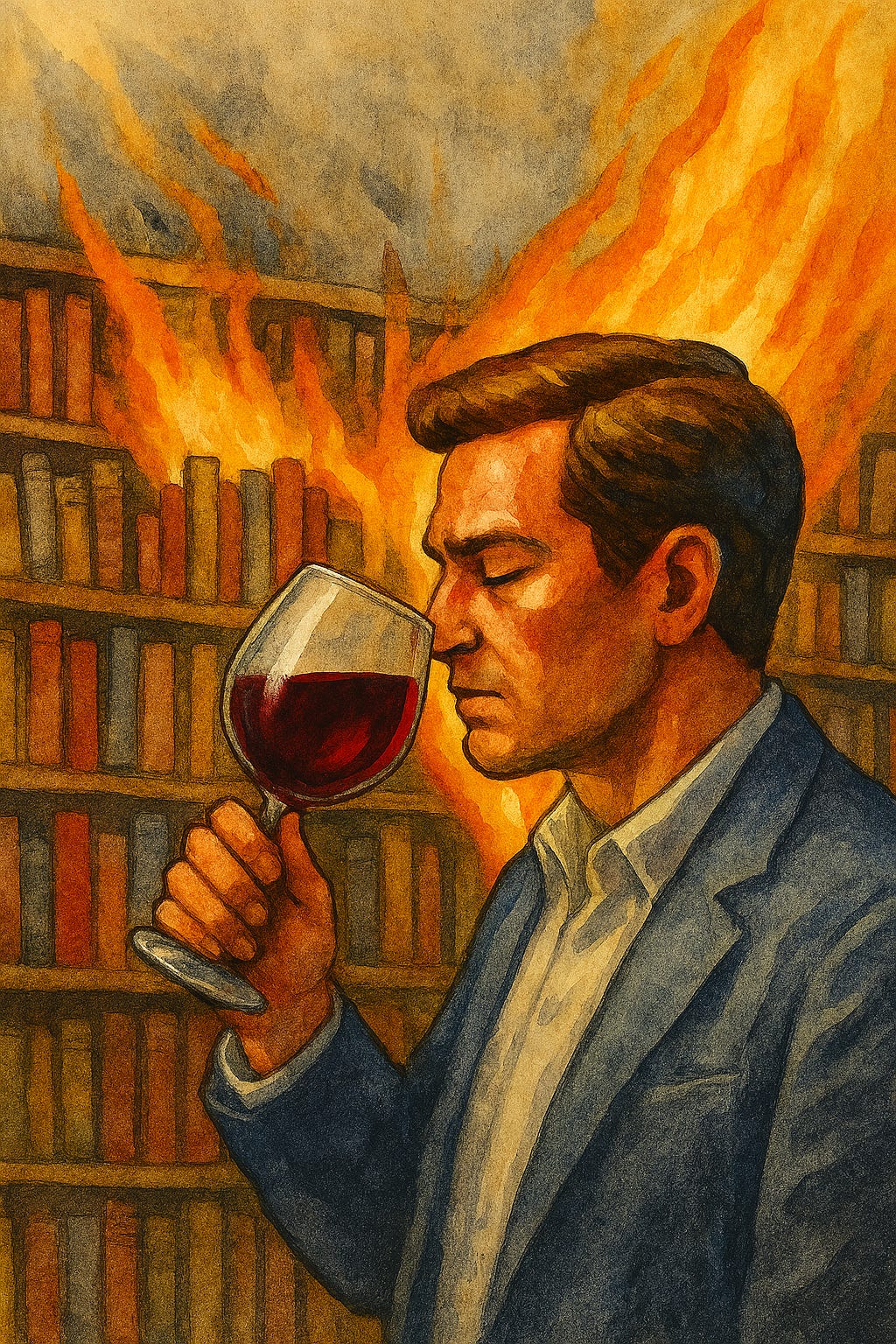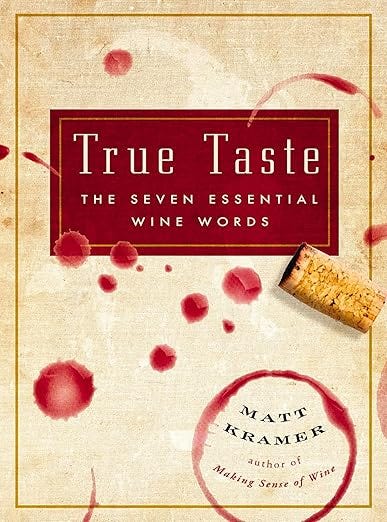Why Wine Writing Might Die
In a post-literate society, nothing that celebrates substance can thrive
I’ve never written a book. But I’ve read hundreds. And I am absolutely certain that the time I’ve spent between the covers of books has provided me with at least as much personal benefit as did six years at university.
It’s equally true that my wine education (which is fairly deep) was not attained by pursuing any credentials at all, but can be attributed to books about wine. I recall the first books about wine that drew me in and sparked my desire to learn more about the subject. And I have shelves filled with the books that provided me with access to the experience and wisdom of people who had lived with and thought about wine extensively.
In fact, I can say with confidence that my more than 30 years working in wine is almost entirely a matter of contending with words and ideas…many of them originating in books.
I can also say with even greater confidence that were I in my early 20s and embarking on a career in wine in 2025, the odds that I would build that career around words and ideas would be quite low. I would be part of a generation that has generally been stripped of the ability to read long-form, complex ideas compiled in books.
I am certain that were I a young lad today, I, like the vast majority of 20-somethings, would have allowed my intellect and curiosity to be stripped away by short-form, visually-centered, nonsense peddled by the smartphone and social media.
And I wonder, what this anti-intellectual social development means for the art of wine writing.
And it is an art. At least the best of it. Moreover, the tradition of contemplating wine is something unique. You don’t see a tradition of Vegetable Writing. You can’t look back and observe the plethora of Orange Juice Columns in newspapers. There is no tradition of memoirs written about a life working in Soup. But wine? Well, the literature is extensive. Who will carry on this tradition, and who will read works about wine?
To understand the profound implications of generations of kids who don’t read, I recommend James Marriott’s recent “The Dawn of Post-Literate Society” in his newsletter, Cultural Capital.
Marriott’s outstanding screed on behalf of literacy gets to the point fairly early in the article:
“A culture of literacy is not just a nice thing to have but that it underpins our entire political culture. The habits of sustained attention, logical argument, and calm impersonal communication are fundamental to a democratic society. All modern democracies are products of the highly literate societies of the nineteenth century. Without literacy, democracy may not survive.”
He is correct about this. The past 350 years of the Enlightenment and its follow-up, liberal democracy, prove this out. And while the future of our democracy is a concern to me, a primary concern is the future of wine writing. The idea that it will be diminished into sound bites to accommodate a population that can’t get through a few paragraphs, let alone the works of Terry Theise, Kermit Lynch, or Karen MacNeil, pains me.
Before launching The Spill, I sounded out several folks on the idea of curating the best of the wine web daily, of highlighting the best wine writing being done. Here’s what one person with long experience in the wine writing trade advised:
“First, you need to make sure you link to the wine videos. Much of it is simple stuff, but it’s what the kids are reading and you want to appeal to them. Second, who’s reading this stuff in the first place? People stopped reading years ago, particularly anyone under 40.”
Obviously, I didn’t take their advice, which ultimately was “it’s a fool’s errand.”
One could go about attempting to slake their curiosity with wine by only watching TikTok and YouTube videos and avoiding the act of sitting in a chair and cracking open the works of Robinson, Johnson, Conaway, Darlington, Schneider, or Haegar. But to set aside the great wine writers in favor of the great TikTokers deprives oneself of the benefits and joy of wrestling with important ideas that really require presentation in print. When you read the work of Gerald Asher, you must stop, go back and reread. Not because his writing is opaque or complex. Because they beckon us to think a little deeper and doing this requires that we reabsorb what we just read. This is a different kind of education than staring at a 4-minute TikTok video that is accompanied by smiley words meant to be forgotten just in time for the next in the series of smiley words to drop.
The problem stems from the smartphone, a new appendage that has robbed at least two generations of the ability to comfortably sit with the printed word, the most revolutionary technology to ever impact man. As Marriott explains:
“Never before has there been a technology like the smartphone. Where previous entertainment technologies like cinema or television were intended to capture their audience’s attention for a period, the smartphone demands your entire life. Phones are designed to be hyper-addictive, hooking users on a diet of pointless notifications, inane short-form videos, and social media rage bait.”
As attention spans and vocabularies continue to decrease among younger people, the need for wine writers to tell their story and explain wine’s significance will wane. And it’s not that there won’t be a cadre of people genuinely interested in the cultural connections that wines possess. It’s that there won’t be enough people able to do the work to explore this connection, so fewer people will bother providing the material.
Again, Marriott:
“This draining away of culture, critical thinking and intelligence represents a tragic loss of human potential and human flourishing. It is also one of the major challenges facing modern societies. Our vast, interconnected, tolerant and technologically advanced civilisation is founded on the complex, rational kinds of thinking fostered by literacy.”
There is no collective action to be taken to push back against the demise of attention spans and reading. The only rational response once you see what is happening is to attempt to save one child at a time, likely your own, by reading to them, forbidding the use of smartphones, and bringing no social media into their lives. To use collective action to stave off the demise of culture would require a draconian set of policies that, once instituted, would set off rebellion.
For those of you who have already raised your children or who are choosing not to raise children, but who, like me, would like to push back against the post-literate society and the impact it will have on wine writing, there is a slightly sinister act to you can take. Recommend our favorite wine books on social media and urge folks to log off and read them.
I’ll start:




Wine and War is a great read. I just received a copy of the Bern's Steak House Wine List, 1984 edition. It has some incredible insights into the early days of modern New World wine. God Forsaken Grapes by Jason Williams is another interesting read.
Pretty sure some of our greatest winemakers have been highly influenced by great wine writing so there is also that. What a great piece, Tom. Thank you. I'm off to read your recommendation with gratitude.